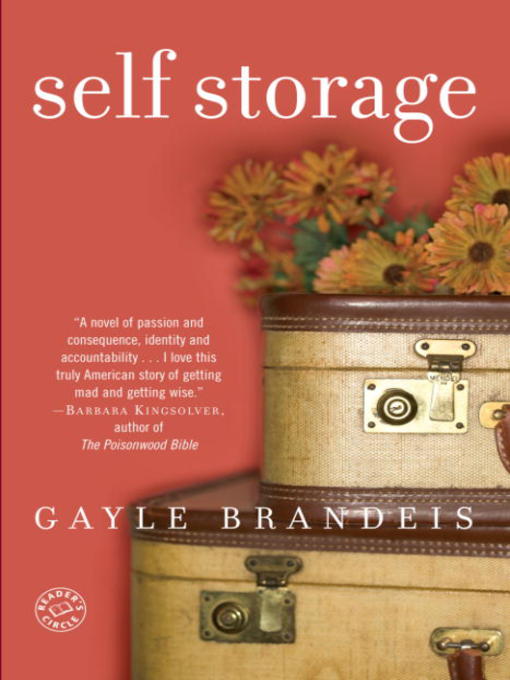
Self Storage
A Novel
کتاب های مرتبط
- اطلاعات
- نقد و بررسی
- دیدگاه کاربران
نقد و بررسی

September 25, 2006
Flan Parker is floundering: her sweet but hapless husband, Shae, is procrastinating on finishing his dissertation, their young children are running wild, and the beloved yard sales she holds in their University of California-Riverside student housing cul-de-sac are under fire from the housing office. Then Flan becomes fascinated with her Afghani neighbors, particularly the wife, Sodaba, hidden beneath a burqa. When Sodaba, pulling into her driveway, accidentally runs over Flan's daughter, racial tension in the community is heightened. The unlikely friendship that develops between Sodaba and Flan in the accident's aftermath sparks its share of trouble as the FBI begins investigating Sodaba's husband for suspected ties to terrorism. Flan is an endearing, juicy character: well-intentioned, less than perfect, with a love of the old and faded (the ancient copy of Leaves of Grass
she totes around and frequently quotes, for instance). Unfortunately, the inevitable political discussions (the book is set in the summer of 2002, and fears of another 9/11-style attack run rampant) are unsatisfying and banal. Brandeis, a winner of Barbara Kingsolver's Bellwether Prize for Fiction (described as "in support of a literature of social change), clearly wants to provoke social reflection. The book is most powerful when focusing on small, intimate moments.

October 15, 2006
Brandeis ("The Book of Dead Birds", winner of Barbara Kingsolvers Bellwether Prize) has written a paean to Walt Whitmans "Song of Myself". Protagonist Flan supports her family by going to self-storage auctions and selling the contents of the storage units; her husband is a graduate student struggling to finish his thesis. Although their housing complex includes families from many nations, their Islamic Afghan neighbors are treated as outcasts, particularly when Sodaba accidentally hits Flans daughter with her car. Despite this incident, Flan helps Sodaba go into hiding when she faces deportation. Meanwhile, themes and snippets of Whitmans poem appear throughout the novel, as Flan and her family struggle to find their authentic selves. Parts feel forced, such as when the stereotypical white middle-class woman accuses the Afghan couple of being terrorists, but readers will identify with Flans quest to go beyond the daily grind. Recommended for most libraries. [See Prepub Alert, "LJ "9/1/06.]" Amy Ford, St. Marys Cty. Lib., Lexington Park, MD"
Copyright 2006 Library Journal, LLC Used with permission.

December 1, 2006
" The Book of Dead Birds "(2003), Brandeis' debut, won Barbara Kingsolver's Bellwether Prize. In her second brisk, covertly trenchant novel, Brandeis manages to weave Walt Whitman, 9/11, and secondhand goods into a provocative story about the nature of one's self and the intrinsically human need to find meaning in life. Flannery cherishes an old edition of " Leaves of Grass," her only bequest from her long-deceased mother. With Whitman as her spiritual guide, she lives hand-to-mouth with her soap-opera-addicted graduate-student husband, high-strung young son, and escape-artist toddler daughter in a Riverside, California, enclave for international scholars. To make ends meet, Flan buys and resells the auctioned-off, memory-laden contents of abandoned self-storage units. As though life isn't precarious enough, Flan is drawn into a high-stakes drama involving her burka-wearing Afghan neighbor, the target of prejudice and hate crimes. Executing a marvelous narrative sleight of hand, Brandeis uses slyly insouciant humor and irresistible characters to delve into the true significance of neighborliness, advocate for doing the right thing, and celebrate a Whitmanesque embrace of life.(Reprinted with permission of Booklist, copyright 2006, American Library Association.)

























دیدگاه کاربران